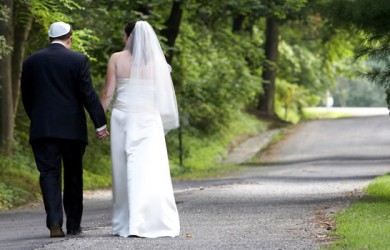Marriage History Versus The Modern Day Marriage

Unlock Daily 30-Sec Tips for a Happier Relationship
👉 Subscribe FREEKey Takeaways
Marriage.com AI Quick Summary
It’s interesting to realize as we explore our history. In particular, marriage history that love had nothing to do with marriage, way back in ancient times. Marriage was more about practical matters, such as making alliances, expanding labour and land, and seeking ‘in-laws’ (according to Stephanie Coontz, Author of Marriage, A History: How Love Conquered Marriage).
This interesting aspect of marriage history dates back to ancient times – before Kings and Queens.
Fast forward to more ‘recent times’, to the start of the economic markets, and when Kings and Queens became rulers. The need to achieve such security became redundant. Causing social ideas about marriage to change with it. Paving the way to a notion of marriage that is based on love and companionship rather than a business transaction. Our marriage history is so ancient, that it predates recorded history.
Back in ancient times, most marriages were likely to be arranged business decisions, to keep ties within the family, and acquire ‘wealth’ and ‘status’ (not necessarily with money though). There is even research out there that claims that most marriages in our history involved marriages between first and second cousins.
Polygamy over monogamy
Interestingly, polygamy was often preferred over monogamy, with some men having thousands of wives, and there were even instances of group marriages. But the rules were not so accommodating in our marriage history when it came to procreation!
Historical marriages were prone to expressing that if a woman was able to have a child then they should not refuse to birth a child. Similarly, a man was able to legally divorce, annul, or take on an additional wife if their existing wife was infertile.
Now, this may all sound harsh, and indeed some of it is. But there are always two sides to a story. Much of our ancient knowledge and history, including our marriage history, is lost on us – so we don’t really understand how this practice came about, and why it was the way that it was. There may have been a collective need for such practices to ensure the survival of the human race, for example.
Nowadays, we have quite the opposite problem – overpopulation. Which means that if marriages were polygamous and women were expected to birth a child then we really would have a problem because there would be no space on Earth to accommodate us all.
Social, economic and political factors were major determinants
Laws and social expectations are often made for political, or economic reasons, even to this date. So it’s not too far out to consider that perhaps the way societies expectations were changed way back in our marriage history was done so because of social, economic and political factors at the time too.
This marriage history so far is as empowering as it may seem to be disempowering.
Our social conditioning encourages us to marry, and in doing so, if we are not careful we can lose our sense of self. We may consider marriage to be somewhat mystical and magical. We raise ourselves in society even to this day based on whether we are married or not.
However, what is interesting is that many people who do not marry for whatever reason, or who cannot conceive – can be sure that they are a valid part of society (even if it doesn’t always seem that way). And are able to survive, and provide for themselves using the economic system with or without a partner in life. And it doesn’t matter (at least when we are discussing the topic of marriage history) who our families and bloodlines are.
Assessing our own marriage
Understanding marriage history also allows us to assess our own marriages, and realize that committing to love and acceptance of each other is not naturally how we were meant to be. Our marriage history tells us so therefore it takes work to stay together. And if there is a moment in your marriage when you feel that your Husband is not stepping up, or your Wife is nagging too much (cliche acknowledged!) and you think it’s their lack of commitment to you or lack of love for you-you might just be mistaken.
Instead, their love and commitment may be extremely strong – but they are not naturally able to step up to this 50-50 partnership that we call marriage these days. Sometimes the figures can lean in one direction, or another. A problem that is often overlooked in most modern-day marriages.
Final take away
If there is one thing that we can all take from our marriage history it is this: We are all doing our best, whether we are in a marriage, single, with children, or without. There is no magical mix of hormones that keep a husband and wife flowing in the same direction as each other, or enabling them to understand each other flawlessly. And marriage in the way that we understand it, is not a natural process – but more a man-made, societal tradition that precedes any religious commitments too. So if some things are not panning out as you expected, remember this, and continue on in your life, or relationships expressing love and kindness. And you might just be able to rewrite marital history.
 Tips
Tips
Write your tip or submit a video tip
All tips are reviewed before the publishing.
Share this article on
Planning to get married?
Just engaged or contemplating marriage? Discover how to transition smoothly into the next phase of your relationship with Marriage.com's Pre-Marriage Course. Begin your incredible journey with this guide designed by experts and lay a strong foundation for your path of togetherness - forever!
Recent Articles
Related Quizzes
Unlock Daily 30-Sec Tips for a Happier, Healthier Relationship
👉 Subscribe FREE on YouTube We'd love your feedback!
We'd love your feedback!
 Expert Q&A
Expert Q&A
Ask your question related to this topic & get the support you deserve from experts.



















 Thanks for your feedback!
Thanks for your feedback!